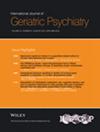Establishing Gold Standard Assessment for Young Onset Dementia: A Modified E-Delphi Consensus Survey Based in Australia
Abstract
Objectives
A modified e-Delphi was used to explore subject-expert consensus to create a minimum & gold standard assessment for young-onset dementia (YOD) for clinicians based in Australia.
Methods
A list of 72 statements adapted from an international study, O'Malley et al. 2020, was included in an online survey that was distributed to clinical experts in the field. Respondents were asked to rate statements on a Likert scale of 1–7 (ranging from ‘1’ being ‘not at all important’ to ‘7’ being ‘absolutely essential’). The mean and standard deviation (SD) were calculated for each statement. Full consensus, designated as ‘minimum standard’ was defined as 100% of respondents rating statement(s) as ‘absolutely essential’ (7) or ‘very important’ (6), while high consensus, designated as ‘gold standard’ was defined as 80% (16 out of 20) of respondents rating statement(s) as either ‘absolutely essential’ or ‘very important’ in the assessment for YOD. The statements that had overall mean scores below 6 did not reach consensus.
Results
Full consensus was achieved on 13 statements (‘minimum standard’), 80% consensus was reached on 37 statements (‘gold standard’), and no consensus was reached on 35 statements. Most clinicians agreed that the diagnosis of YOD is largely based on history, with less emphasis placed on aspects of the examination and investigations conducted. History of first-degree family members with YOD and any past psychiatric symptoms were reported to be potential triggers for a YOD diagnosis. There was agreement that the routine dementia blood screen and baseline structural imaging should be a part of the diagnostic assessment criteria of YOD. Comparisons were made between the results of this Australian-based study to the original international study, which found that 55/72 statements (76%) were similarly rated.
Conclusions
Based on the results of this modified e-Delphi study, full and high consensus was reached on 37 statements which were comparable to results in an international study. This suggests that in general, clinicians in Australia have agreement with international experts about what is important for the assessment and diagnosis of YOD. Because the statements used in the international study were used in this Australian study, consideration of what issues may be specific to the Australian context such as YOD in Aboriginal Australians and rurality may have not been ascertained. In spite of this, these results may be useful to aid clinicians in their assessment for YOD but consensus statements may change over time as development in knowledge and available tests increases.

 求助内容:
求助内容: 应助结果提醒方式:
应助结果提醒方式:


